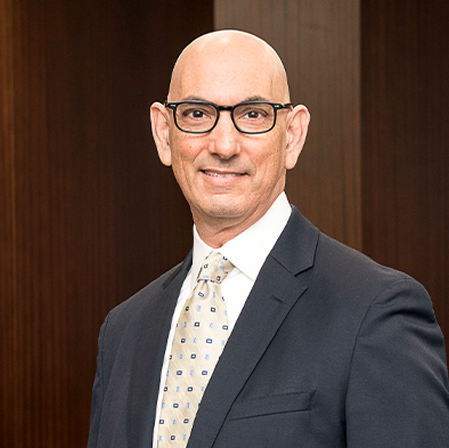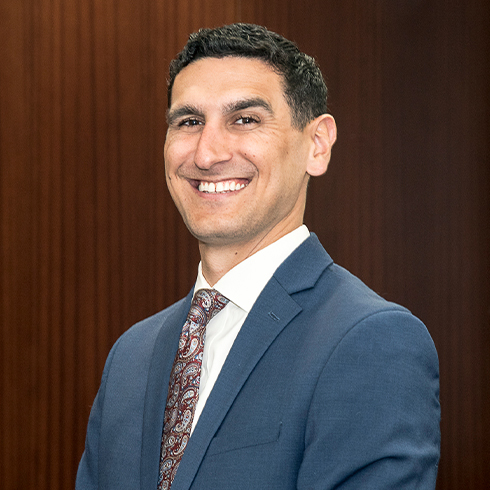When you are injured on someone else’s property, it can be a confusing and overwhelming experience. You may be dealing with pain, medical bills, and the inability to work, all while trying to understand if you have any legal recourse. In Maryland, if you have suffered an injury due to unsafe or hazardous conditions on another person’s property, you may be entitled to compensation for your damages. The state’s premises liability laws protect individuals who are injured on someone else’s property, but these laws are complex. Understanding your rights and how to navigate the legal process is crucial for securing the compensation you deserve.
Premises liability refers to the legal responsibility that property owners and occupants have for injuries that occur on their property. The basis of a premises liability claim is typically negligence, which means that the property owner failed to take reasonable steps to prevent the dangerous condition that led to the injury. While the law requires property owners to maintain safe conditions, the level of responsibility can depend on several factors. These include the type of property, the relationship between the injured party and the property owner, and the specific circumstances of the injury. Maryland’s laws governing premises liability can be particularly complicated, but if you have been injured, you may be able to recover compensation for medical expenses, lost wages, pain and suffering, and other related damages.
Understanding Premises Liability in Maryland
Maryland’s premises liability laws are designed to protect individuals who are injured due to unsafe or hazardous conditions on another person’s property. However, the law distinguishes between different types of visitors, and the property owner’s liability may vary depending on whether the injured person was an invitee, licensee, or trespasser. An invitee is someone who has been invited onto the property for business or commercial purposes, such as a customer in a store. Property owners owe the highest duty of care to invitees, meaning they must take reasonable steps to ensure the property is safe and warn of any known hazards. A licensee, on the other hand, is someone who has permission to be on the property for non-commercial reasons, such as a social guest. Property owners owe licensees a duty to warn of known dangers, but they are not required to inspect the property for hazards as thoroughly as they would for an invitee.
Trespassers, who enter a property without permission, are generally owed the least amount of care. In most cases, property owners are not liable for injuries sustained by trespassers unless the owner deliberately created dangerous conditions. However, there are exceptions, particularly if the trespasser is a child, in which case the property owner may still have some responsibility under Maryland law. Understanding these distinctions is crucial when determining whether you have a valid premises liability claim. Each category of visitor is treated differently under the law, and the success of your claim may depend on how the court categorizes your visit to the property where the injury occurred.
What Are Common Types of Premises Liability Cases?
Premises liability cases can arise from a variety of dangerous conditions on someone else’s property. Some of the most common types of premises liability cases in Maryland include slip and fall accidents, which are often caused by wet floors, uneven surfaces, or poorly maintained walkways. Another common type of premises liability case involves inadequate security. If a property owner fails to provide adequate security measures, and someone is injured as a result of criminal activity, the owner may be held liable for the victim’s injuries. This is especially relevant in places like apartment complexes, shopping centers, and parking garages, where criminal activity may be foreseeable, and property owners have a responsibility to take steps to protect visitors from harm.
Other examples of premises liability cases include dog bites, where a property owner may be responsible if their pet injures a visitor; accidents caused by falling objects, often from improperly secured shelves or construction areas; and swimming pool accidents, where inadequate supervision, lack of safety barriers, or faulty equipment can result in serious injury or even death. Regardless of the specific circumstances, property owners in Maryland are required to maintain their premises in a reasonably safe condition, and failure to do so can result in liability for any injuries that occur as a result.
Amazing firm. Went above and beyond in making me feel welcomed, informed, and at ease considering the serious reasons for me being there. It was my first time dealing with something like this and it was comforting knowing I had a whole team behind me working to get the best outcome possible which they did. Highly recommend this firm to anyone looking for a good reliable lawyer who will work with you and be considerate of your well being.” - Daniel Torres
How to Prove Negligence in a Premises Liability Case
To successfully recover compensation in a premises liability case in Maryland, the injured party must prove that the property owner was negligent. This generally requires establishing four key elements. First, you must show that the property owner owed you a duty of care. As previously discussed, the level of care owed depends on your status as a visitor. If you were an invitee, the property owner had a duty to take reasonable steps to ensure the property was safe. If you were a licensee, the owner had a duty to warn you of known dangers.
Second, you must demonstrate that the property owner breached that duty of care by failing to maintain the property or address the hazardous condition. This could include failing to clean up a spill, repair broken steps, or provide adequate security in an area where criminal activity was foreseeable. The third element is causation, which means you must prove that the property owner’s negligence directly caused your injury. Finally, you must show that you suffered actual damages as a result of the injury, such as medical bills, lost wages, or pain and suffering.
Proving these elements can be challenging, especially when it comes to showing that the property owner knew or should have known about the hazardous condition. In some cases, it may be necessary to gather evidence such as maintenance records, witness testimony, or surveillance footage to establish that the property owner failed to meet their legal obligations.
Value of a Personal Injury Case Choosing a Personal Injury AttorneyRelated Videos
Defenses to Premises Liability Claims in Maryland
Property owners may use several defenses to avoid liability in premises liability cases. One common defense is the “open and obvious” doctrine, which holds that the property owner is not responsible for injuries caused by hazards that were clearly visible and could have been avoided with reasonable care. For example, if you tripped over a clearly visible object, the property owner may argue that the danger was open and obvious, and therefore they are not liable for your injuries.
Another defense property owners may use is contributory negligence. Maryland is one of the few states that follows the doctrine of contributory negligence, which means that if you are found to be even partially responsible for your own injury, you may be barred from recovering any compensation. For instance, if you were texting while walking and tripped over a hazard that you might have otherwise noticed, the property owner could argue that you were partly at fault for the accident, and therefore you are not entitled to compensation. Because of the contributory negligence rule, it is especially important to work with an experienced legal professional who can help you avoid potential pitfalls and protect your right to recovery.
What Compensation Can You Recover in a Premises Liability Claim?
If you are successful in your premises liability claim, you may be entitled to recover a variety of damages. These can include compensation for medical bills related to the injury, such as hospital stays, surgeries, medication, physical therapy, and other necessary treatments. You may also be able to recover compensation for lost wages if your injury prevented you from working, as well as any future earnings you may lose if you are unable to return to work in the same capacity.
In addition to economic damages, you may be entitled to non-economic damages, such as compensation for pain and suffering, emotional distress, and loss of enjoyment of life. These damages are more difficult to quantify but can significantly impact your quality of life after an injury. In some cases, you may also be awarded punitive damages, which are intended to punish particularly egregious conduct on the part of the property owner and deter similar behavior in the future. However, punitive damages are rarely awarded in premises liability cases and are typically reserved for cases involving intentional or grossly negligent behavior.
Verdicts & Settlements
How an Attorney Can Help with Your Premises Liability Claim
Navigating a premises liability claim in Maryland can be difficult, especially given the complexities of the law and the defenses available to property owners. Working with a legal professional who understands the nuances of Maryland’s premises liability laws can greatly increase your chances of securing the compensation you deserve. A knowledgeable attorney can help you gather evidence to prove that the property owner was negligent, negotiate with insurance companies on your behalf, and represent your interests in court if necessary.
If you or a loved one has been injured on someone else’s property in Maryland, it is important to act quickly. Maryland has a statute of limitations for premises liability claims, meaning you have a limited amount of time to file a lawsuit. Failing to meet this deadline could prevent you from recovering any compensation for your injuries.
If you have been injured on someone else’s property in Maryland and are wondering whether you can seek compensation, the legal professionals at Alpert Schreyer, LLC are here to help. Our team has extensive experience handling premises liability claims and can provide you with the guidance and support you need to pursue the compensation you deserve. Contact Alpert Schreyer, LLC today for a consultation to discuss your case and learn more about your legal options.
















